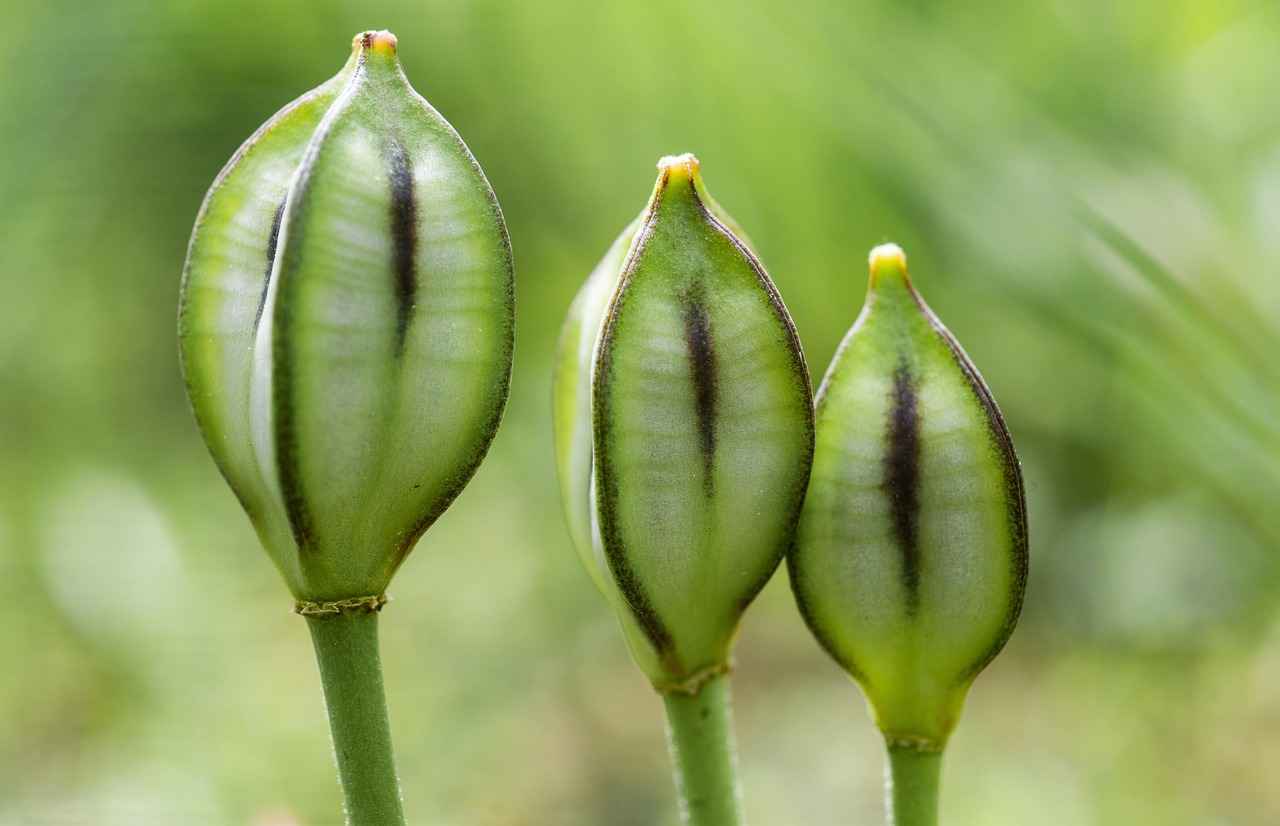Chia seeds, often hailed as a superfood, are tiny black seeds derived from the Salvia hispanica plant. Their popularity has surged due to their impressive nutritional profile and numerous health benefits. This article delves into the recommended daily intake of chia seeds, their health advantages, potential risks, and practical tips for effective incorporation into your diet.
Chia seeds are packed with omega-3 fatty acids, fiber, protein, and essential micronutrients. Just a small amount contains:
- Omega-3 Fatty Acids: Beneficial for heart health.
- Fiber: Supports digestive health and helps maintain a healthy weight.
- Protein: Essential for muscle repair and growth.
- Micronutrients: Includes calcium, magnesium, and iron.
Experts recommend a daily intake of 1 to 2 tablespoons of chia seeds. This amount is sufficient to reap their health benefits while minimizing the risk of digestive discomfort. It’s important to start with a smaller quantity, especially if you are new to chia seeds, and gradually increase your intake.
The health benefits of chia seeds are numerous:
- Improved Digestion: Their high fiber content promotes regular bowel movements.
- Heart Health: Omega-3s help lower cholesterol and inflammation.
- Weight Management: Chia seeds can enhance satiety, aiding in weight loss efforts.
Yes, chia seeds may assist in weight loss. They absorb water and expand in the stomach, leading to a feeling of fullness that can reduce overall calorie intake. This property makes them an excellent addition to meals or snacks.
Rich in omega-3 fatty acids, chia seeds can contribute to better heart health by lowering cholesterol levels and reducing inflammation, which are key factors in preventing cardiovascular diseases.
While generally safe for most people, excessive consumption of chia seeds can lead to digestive issues such as bloating or gas. It is crucial to introduce them into your diet gradually and ensure adequate hydration, as they can absorb significant amounts of water.
Incorporating chia seeds into your diet is simple and versatile:
- Sprinkle: Add them to salads or yogurt.
- Smoothies: Blend them into your favorite smoothie for added nutrition.
- Baking: Use them in bread, muffins, or energy bars.
Yes, chia seeds can be eaten raw. However, soaking them in water or other liquids enhances their digestibility and nutrient absorption, making them more beneficial for your health.
From chia pudding to energy bars, there are countless recipes that incorporate chia seeds. These dishes not only taste great but also maximize the health benefits of these tiny seeds.
To maintain their freshness and nutritional value, chia seeds should be stored in a cool, dry place, preferably in an airtight container. Proper storage helps prevent them from going rancid.
Chia seeds have a long shelf life, but they can go rancid if not stored properly. Regularly check for off smells or changes in texture to ensure their quality.
There is no specific best time to consume chia seeds; they can be enjoyed at any meal. However, incorporating them into breakfast or snacks can provide sustained energy throughout the day.
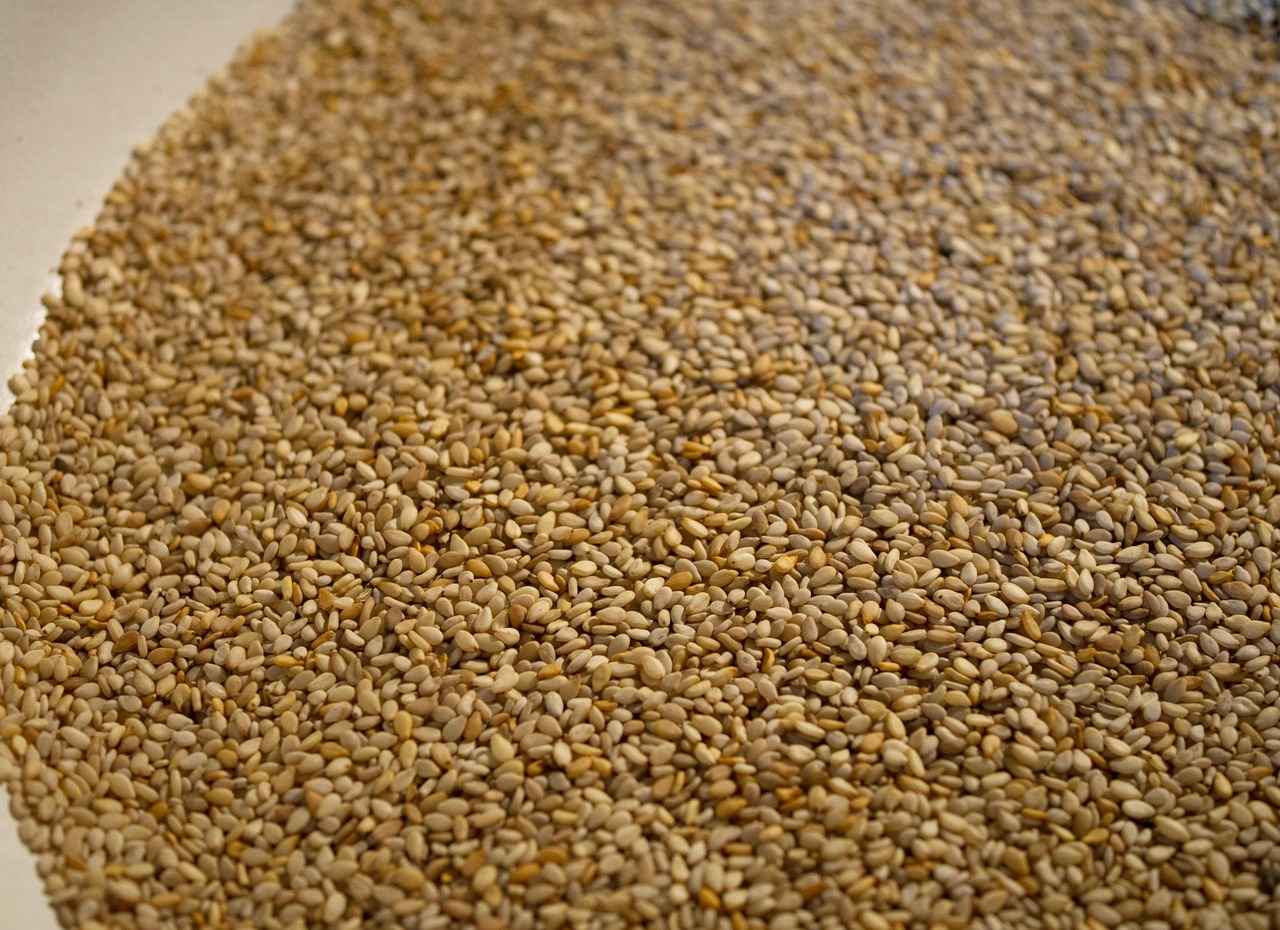
What Are Chia Seeds and Their Nutritional Profile?
Chia seeds are small, black or white seeds derived from the Salvia hispanica plant, which is native to Mexico and Guatemala. These tiny seeds have gained immense popularity in recent years due to their impressive nutritional profile and numerous health benefits. Packed with essential nutrients, chia seeds are a versatile addition to a healthy diet.
One of the most remarkable aspects of chia seeds is their high content of omega-3 fatty acids, particularly alpha-linolenic acid (ALA). Omega-3 fatty acids are known for their anti-inflammatory properties and their role in supporting heart health. In fact, just one ounce (about 28 grams) of chia seeds contains approximately 5 grams of ALA, making them one of the richest plant-based sources of omega-3s.
In addition to omega-3s, chia seeds are an excellent source of dietary fiber. A single serving provides about 11 grams of fiber, which is almost one-third of the daily recommended intake for adults. This high fiber content not only aids in digestion but also promotes a feeling of fullness, making chia seeds a popular choice for those looking to manage their weight.
Chia seeds are also a good source of protein, containing about 4 grams per ounce. This makes them an excellent addition to vegetarian and vegan diets, as they provide a plant-based protein source that is also rich in essential amino acids. Furthermore, chia seeds are packed with various micronutrients, including calcium, magnesium, phosphorus, and manganese, which are vital for maintaining overall health.
- Calcium: Important for bone health and muscle function.
- Magnesium: Plays a role in over 300 biochemical reactions in the body.
- Phosphorus: Essential for the formation of bones and teeth.
- Manganese: Involved in metabolism and antioxidant defense.
Moreover, chia seeds are rich in antioxidants, which help combat oxidative stress and may reduce the risk of chronic diseases. The antioxidants in chia seeds can also contribute to skin health by protecting against damage from UV rays and pollution.
When it comes to their culinary uses, chia seeds are incredibly versatile. They can be added to smoothies, yogurt, oatmeal, or baked goods. Due to their ability to absorb liquid and form a gel-like consistency, they can also be used as a vegan substitute for eggs in various recipes. Soaking chia seeds in water or milk creates a satisfying chia pudding that can be customized with different flavors and toppings.
In summary, chia seeds are a nutrient-dense superfood that offers a multitude of health benefits. Their high content of omega-3 fatty acids, fiber, protein, and essential micronutrients makes them an excellent addition to any diet. Whether you sprinkle them on salads or blend them into smoothies, incorporating chia seeds into your meals can enhance your overall health and well-being.
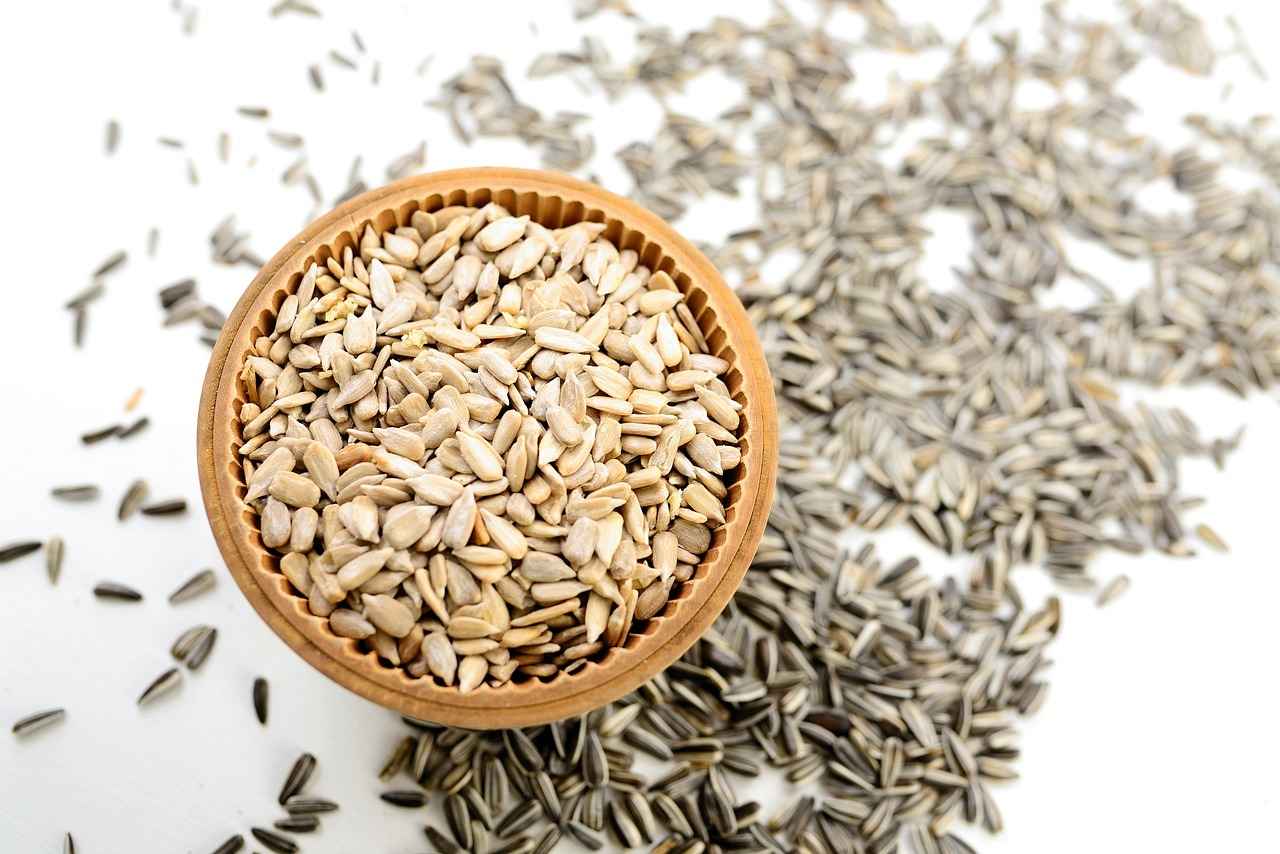
How Many Chia Seeds Should You Consume Daily?
Chia seeds have become a popular superfood due to their numerous health benefits and versatility in various dishes. Many individuals are curious about the recommended daily intake of these tiny seeds to maximize their health advantages. Understanding how much chia seeds to consume daily can help you incorporate them effectively into your diet.
Experts generally recommend a daily intake of 1 to 2 tablespoons of chia seeds for optimal health benefits. This amount is considered sufficient to provide the essential nutrients without overwhelming your digestive system. When consumed in moderation, chia seeds can contribute to improved digestion, heart health, and weight management.
Chia seeds are rich in omega-3 fatty acids, fiber, protein, and various micronutrients. The high fiber content aids in digestion and promotes a feeling of fullness, which can be beneficial for those looking to manage their weight. Additionally, the omega-3 fatty acids found in chia seeds support heart health by helping to lower cholesterol levels and reduce inflammation.
However, it is crucial to listen to your body. If you are new to chia seeds, consider starting with 1 tablespoon per day and gradually increasing the amount to avoid any potential digestive discomfort. Chia seeds can absorb a significant amount of water, expanding in your stomach and potentially leading to bloating if consumed in excess.
- Improved Digestion: The high fiber content in chia seeds promotes healthy bowel movements.
- Heart Health: Omega-3 fatty acids help reduce inflammation and lower cholesterol levels.
- Weight Management: Chia seeds can help you feel fuller for longer, reducing overall calorie intake.
While chia seeds are generally safe for most people, excessive consumption can lead to digestive issues. It is essential to introduce them gradually into your diet. If you experience any discomfort, consider reducing your intake or consulting with a healthcare professional.
There are several practical ways to add chia seeds to your meals:
- Sprinkle on Salads: Add a tablespoon to your favorite salad for a nutritious boost.
- Blend into Smoothies: Incorporate chia seeds into your morning smoothie for added fiber and protein.
- Use in Baking: Substitute chia seeds in recipes for muffins or bread for a healthy twist.
Yes, chia seeds can be consumed raw. However, soaking them in water or other liquids enhances their digestibility and nutrient absorption. Soaked chia seeds can be added to various dishes or enjoyed as a pudding.
From chia pudding to energy bars, there are countless recipes that incorporate chia seeds. These dishes not only taste great but also maximize the health benefits of these tiny seeds.
Proper storage of chia seeds is crucial for maintaining their freshness and nutritional value. Keep them in a cool, dry place, preferably in an airtight container. This will help prevent them from going rancid.
There isn’t a specific best time to consume chia seeds; they can be enjoyed at any meal. However, incorporating them into breakfast or snacks can provide sustained energy throughout the day.
What Are the Health Benefits of Chia Seeds?
Chia seeds, often hailed as a superfood, are small black and white seeds derived from the Salvia hispanica plant, native to Mexico and Guatemala. Their nutritional profile is impressive, packed with essential nutrients that contribute to various health benefits. This article delves into the remarkable advantages of incorporating chia seeds into your daily diet.
One of the most notable benefits of chia seeds is their ability to promote digestive health. These seeds are rich in soluble fiber, which absorbs water and forms a gel-like substance in the stomach. This process not only aids in regular bowel movements but also helps to prevent constipation. By fostering a healthy gut, chia seeds can enhance overall digestive function.
Chia seeds are a fantastic source of omega-3 fatty acids, which are essential for heart health. Regular consumption of these seeds can help lower cholesterol levels and reduce inflammation in the body. Studies have shown that incorporating chia seeds into your diet can lead to improved cardiovascular health and a decreased risk of heart disease.
For those looking to manage their weight, chia seeds offer a natural solution. Their high fiber content promotes a feeling of satiation, which can help curb appetite and reduce overall calorie intake. When consumed, chia seeds can expand in the stomach, making you feel fuller for longer periods. This property makes them a valuable addition to meals and snacks for weight-conscious individuals.
Chia seeds are also loaded with antioxidants, which help combat oxidative stress and inflammation in the body. Antioxidants play a crucial role in preventing chronic diseases and promoting overall health. By including chia seeds in your diet, you can harness these protective benefits and enhance your body’s resilience against various health issues.
Another advantage of chia seeds is their versatility. They can be easily added to various dishes, making them an effortless way to boost your nutritional intake. You can sprinkle them on salads, mix them into smoothies, or incorporate them into baked goods. Their neutral flavor makes them an ideal addition to both sweet and savory recipes.
Chia seeds are unique in their ability to absorb up to 12 times their weight in water. This characteristic not only aids in hydration but also helps maintain electrolyte balance in the body. Consuming chia seeds soaked in water or added to beverages can be an effective way to stay hydrated, especially during hot weather or after exercise.
While chia seeds offer numerous health benefits, it’s essential to consume them in moderation. Excessive intake may lead to digestive discomfort, such as bloating or gas. To avoid these issues, it’s advisable to start with a small amount and gradually increase your intake as your body adjusts.
In conclusion, chia seeds are a nutrient powerhouse that can significantly enhance your health. From improving digestion and supporting heart health to aiding in weight management, the benefits are extensive. Incorporating these tiny seeds into your daily diet can lead to substantial health improvements, making them a worthy addition to any meal plan.
Can Chia Seeds Help with Weight Loss?
Chia seeds have become a popular addition to many diets, particularly among those looking to manage their weight. These tiny seeds are not only packed with nutrients but also possess unique properties that may aid in weight loss. One of the primary reasons chia seeds can be beneficial for weight management is their remarkable ability to absorb water and expand in the stomach.
When chia seeds are consumed, they can absorb up to 12 times their weight in water. This expansion creates a gel-like substance in the stomach, which can promote a feeling of fullness. As a result, individuals may find themselves eating less during meals, leading to a decrease in overall calorie intake. This natural appetite suppression can be a significant advantage for those trying to shed extra pounds.
Additionally, chia seeds are an excellent source of dietary fiber. Each serving contains approximately 10 grams of fiber, which plays a crucial role in digestion and satiety. High-fiber foods are known to slow down the digestion process, helping to maintain stable blood sugar levels and prolonging the sensation of fullness after eating. This can prevent unnecessary snacking between meals, further supporting weight loss efforts.
Moreover, chia seeds are low in calories and high in essential nutrients, making them a perfect addition to a weight loss diet. They are rich in omega-3 fatty acids, protein, and various vitamins and minerals, which can help ensure that your body receives the necessary nutrients while you are in a calorie deficit.
Incorporating chia seeds into your daily routine is simple and versatile. They can be added to smoothies, yogurt, oatmeal, or even used as a thickening agent in soups and sauces. Their mild flavor allows them to blend seamlessly into various dishes without altering the taste.
However, it is essential to consume chia seeds in moderation. While they offer numerous health benefits, excessive intake may lead to digestive discomfort, including bloating or gas. It is advisable to start with a small amount, such as one tablespoon per day, and gradually increase your intake as your body adjusts.
In conclusion, chia seeds can be a valuable ally in your weight loss journey. Their ability to absorb water, combined with their high fiber content and nutrient density, makes them an excellent choice for those looking to manage their weight effectively. By incorporating chia seeds into a balanced diet, individuals may find it easier to control their appetite and reduce overall calorie intake, ultimately leading to successful weight loss.
Do Chia Seeds Improve Heart Health?
Chia seeds, derived from the Salvia hispanica plant, have garnered significant attention in recent years due to their impressive nutritional profile and potential health benefits. Among these benefits, their role in promoting heart health stands out, particularly because they are rich in omega-3 fatty acids. This essential nutrient is known for its ability to support cardiovascular function and reduce the risk of heart-related diseases.
Understanding Omega-3 Fatty Acids
Omega-3 fatty acids are a type of polyunsaturated fat that play a crucial role in maintaining heart health. They are primarily found in fatty fish, flaxseeds, and, of course, chia seeds. These fatty acids contribute to heart health by:
- Lowering cholesterol levels: Studies have shown that omega-3 fatty acids can help reduce levels of low-density lipoprotein (LDL) cholesterol, often referred to as “bad” cholesterol. By lowering LDL cholesterol, the risk of plaque buildup in arteries decreases, which is a significant factor in heart disease.
- Reducing inflammation: Chronic inflammation is a contributing factor to many cardiovascular diseases. Omega-3 fatty acids possess anti-inflammatory properties that can help mitigate this risk, promoting overall heart health.
- Improving blood vessel function: Regular intake of omega-3s is associated with improved endothelial function, which is vital for maintaining healthy blood vessels and ensuring proper blood flow.
Chia Seeds and Their Nutritional Benefits
In addition to omega-3 fatty acids, chia seeds are packed with essential nutrients that further support heart health:
- High in fiber: Chia seeds are an excellent source of dietary fiber, which can help lower cholesterol levels and improve digestion.
- Rich in antioxidants: These tiny seeds contain antioxidants that combat oxidative stress in the body, reducing the risk of heart diseases.
- Source of protein: Chia seeds provide a plant-based protein source, essential for maintaining muscle mass and overall health.
Recommended Intake for Optimal Heart Health
To reap the heart health benefits of chia seeds, a daily intake of 1 to 2 tablespoons is generally recommended. This amount provides an adequate dose of omega-3 fatty acids and other vital nutrients without overwhelming the digestive system. It’s important to gradually introduce chia seeds into your diet, especially if you’re not accustomed to high-fiber foods, to prevent any digestive discomfort.
How to Incorporate Chia Seeds into Your Diet
Incorporating chia seeds into your diet is simple and versatile. Here are some practical ways to enjoy them:
- Add them to smoothies for a nutritional boost.
- Sprinkle them on salads or yogurt for added texture.
- Use them in baking recipes, such as muffins or energy bars.
- Make chia pudding by soaking them in almond milk or coconut milk overnight.
Conclusion
Chia seeds are a powerhouse of nutrition, particularly beneficial for heart health due to their omega-3 fatty acid content, fiber, and antioxidants. By incorporating them into your daily diet, you can take significant steps towards improving your cardiovascular health and reducing the risk of heart disease. Always consult with a healthcare professional before making any major dietary changes, especially if you have existing health concerns.
Are There Any Risks Associated with Chia Seeds?
Chia seeds have become a popular addition to many diets due to their nutritional benefits and versatility. However, like any food, they come with certain risks, particularly when consumed in excessive amounts. Understanding these risks is crucial for anyone looking to incorporate chia seeds into their daily routine.
Digestive Issues: One of the primary concerns associated with chia seeds is their potential to cause digestive discomfort. Chia seeds are incredibly high in fiber, which can be beneficial for digestion, but too much fiber can lead to issues such as bloating, gas, and even constipation. To mitigate these risks, it’s advisable to start with a small amount—about 1 teaspoon per day—and gradually increase your intake to the recommended 1 to 2 tablespoons. This gradual introduction allows your digestive system to adjust.
Hydration is Key: Chia seeds can absorb up to 10-12 times their weight in water. This property is beneficial for hydration; however, if consumed dry or without adequate liquid, they can expand in the digestive tract, leading to potential blockages. Always ensure you consume chia seeds with sufficient water or in soaked form to prevent any complications.
Allergic Reactions: Although rare, some individuals may experience allergic reactions to chia seeds. Symptoms can include skin rashes, itching, or gastrointestinal distress. If you have a history of food allergies, it’s wise to consult with a healthcare professional before adding chia seeds to your diet.
Interactions with Medications: Chia seeds may interact with certain medications, particularly those that affect blood sugar levels or blood pressure. Due to their high fiber content, they can slow the absorption of medications, potentially altering their effectiveness. If you are on medication, especially for diabetes or hypertension, consult your doctor to discuss whether chia seeds are safe for you.
Caloric Consideration: While chia seeds are nutrient-dense, they are also high in calories. Overconsumption can lead to unintended weight gain, especially if not accounted for in your overall daily caloric intake. Moderation is crucial, and incorporating chia seeds into a balanced diet is the best approach.
Conclusion: While chia seeds offer a multitude of health benefits, it is essential to consume them responsibly. By starting with small amounts, staying hydrated, and being aware of potential allergies or interactions, you can enjoy the advantages of chia seeds without the associated risks. Always consider consulting with a healthcare professional for personalized advice tailored to your health needs.
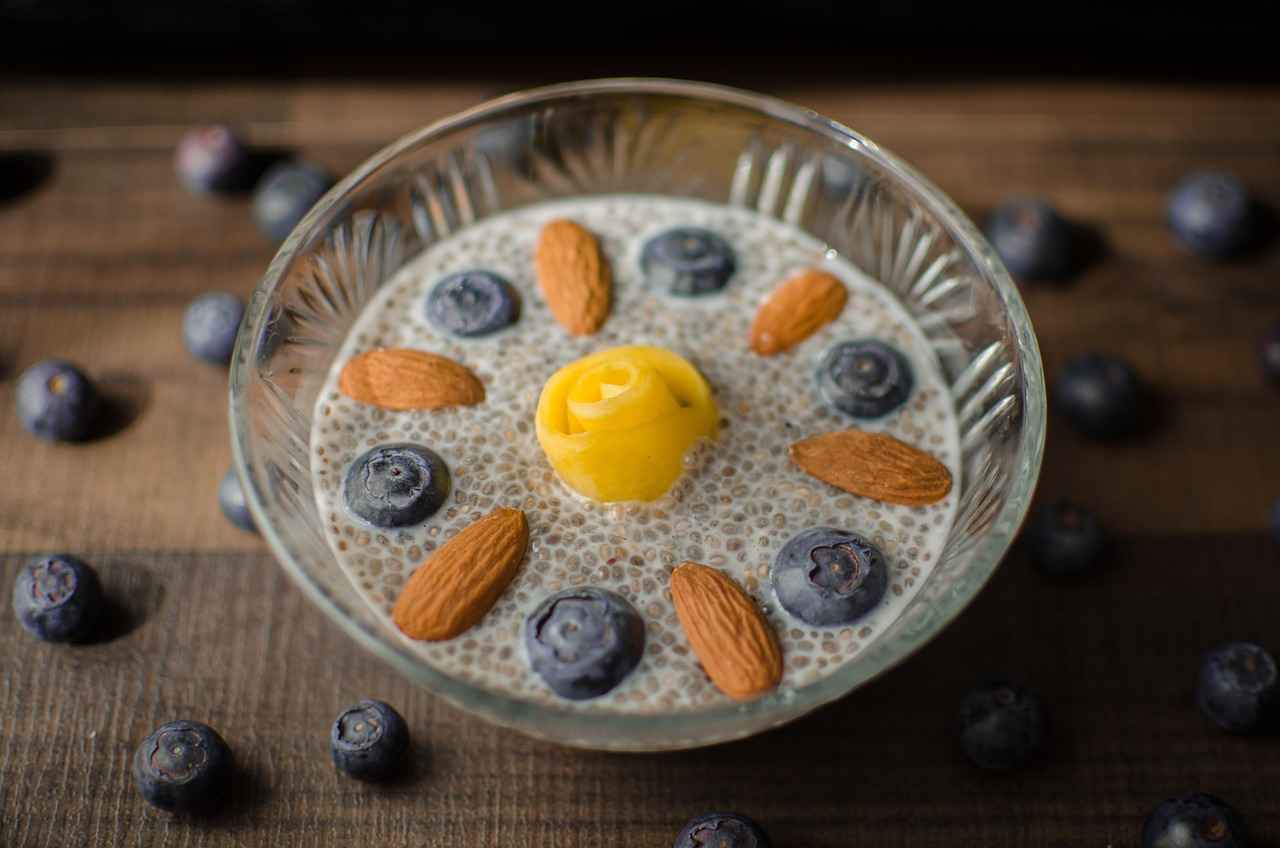
How to Incorporate Chia Seeds into Your Diet?
Chia seeds are an incredibly versatile addition to any diet, offering a plethora of health benefits while being easy to incorporate into various meals. Their unique texture and ability to absorb liquid make them a delightful ingredient that can enhance both the nutritional value and taste of your dishes. Below are several practical and creative ways to incorporate chia seeds into your daily meals.
One of the simplest ways to enjoy chia seeds is by sprinkling them on salads. Their slight crunch adds a delightful texture, while their nutritional properties boost the overall health benefits of your meal. Try mixing them into your favorite salad dressing or simply adding them as a topping to your fresh greens.
Chia seeds can be easily blended into smoothies, providing a rich source of fiber and omega-3 fatty acids. Adding 1-2 tablespoons of chia seeds to your morning smoothie not only enhances its creaminess but also helps keep you full longer. Combine them with fruits, vegetables, and a liquid base like almond milk for a delicious and nutritious drink.
Chia seeds can also be incorporated into your baking recipes. They can replace eggs in vegan baking or be added to muffins, bread, and pancakes to increase their nutritional profile. Mixing chia seeds into your batter not only boosts fiber content but also adds a unique texture that many find enjoyable.
Chia pudding is a popular dish that is both delicious and easy to prepare. Simply mix chia seeds with your choice of milk (dairy or plant-based) and let them soak overnight. The seeds will absorb the liquid and create a thick pudding-like consistency. Flavor it with fruits, honey, or vanilla for a delightful snack or breakfast option.
For a nutritious breakfast, consider adding chia seeds to your oatmeal or yogurt. Just a tablespoon can significantly enhance the fiber and protein content of your meal. Mix them into your oatmeal while cooking or sprinkle them on top of yogurt along with fruits and nuts for added texture and flavor.
Chia seeds can also be used in soups and stews to thicken the consistency. Just a tablespoon added to your pot can help create a heartier dish without altering the flavor. Remember to stir well to ensure even distribution and to prevent clumping.
Homemade energy bars are another fantastic way to utilize chia seeds. Combine them with nuts, dried fruits, and a binding agent like nut butter to create a nutritious snack that’s perfect for on-the-go. These bars are not only tasty but also packed with energy-boosting nutrients.
In summary, incorporating chia seeds into your diet is a simple and effective way to enhance your meals. Whether you sprinkle them on salads, blend them into smoothies, or use them in baking, the possibilities are endless. With their numerous health benefits and versatility, chia seeds can easily become a staple in your kitchen.
Can You Eat Chia Seeds Raw?
Chia seeds have become a popular superfood due to their impressive nutritional profile and health benefits. One common question that arises is whether these tiny seeds can be consumed raw. The answer is yes, chia seeds can indeed be eaten raw. However, soaking them in water or other liquids is highly recommended to enhance their digestibility and nutrient absorption, making them more beneficial for your health.
When chia seeds are consumed raw, they can be a bit challenging for some individuals to digest. This is primarily because they are high in fiber and can absorb significant amounts of liquid. In their dry form, chia seeds can expand up to 10-12 times their size when they come into contact with moisture. This expansion can lead to discomfort for those who are not used to high-fiber foods, as they may swell in the stomach and create a feeling of fullness.
Soaking chia seeds in water or other liquids before consumption helps to break down their outer shell, making the nutrients more accessible for absorption. When soaked, chia seeds form a gel-like consistency, which not only enhances their digestibility but also adds a unique texture to various dishes. This gel can be easily incorporated into smoothies, puddings, and baked goods, providing a nutritious boost without compromising taste.
Moreover, soaking chia seeds can also help in maximizing their health benefits. These seeds are rich in omega-3 fatty acids, antioxidants, and essential minerals. By soaking them, you ensure that your body can effectively utilize these nutrients, promoting better overall health. Furthermore, the soluble fiber present in chia seeds aids in digestion and can contribute to a healthy gut microbiome.
For those who prefer to consume chia seeds raw, it is advisable to start with small amounts and gradually increase your intake. This approach allows your digestive system to adjust to the increased fiber content. A common recommendation is to consume about 1 to 2 tablespoons of chia seeds per day, either raw or soaked, depending on your preference and tolerance.
In addition to their nutritional benefits, chia seeds are incredibly versatile. They can be sprinkled on salads, added to smoothies, or used as a thickening agent in soups and sauces. For a quick and nutritious snack, consider mixing soaked chia seeds with yogurt or blending them into a smoothie for added texture and health benefits.
In conclusion, while chia seeds can be enjoyed raw, soaking them is a simple and effective way to enhance their health benefits. By incorporating soaked chia seeds into your diet, you can enjoy their nutritional advantages while ensuring optimal digestibility. Whether you choose to consume them raw or soaked, chia seeds are a fantastic addition to a balanced diet.
What Are Some Delicious Chia Seed Recipes?
Chia seeds have become a staple in many kitchens, not just for their health benefits but also for their versatility in various recipes. These tiny seeds are packed with nutrients and can be easily incorporated into both sweet and savory dishes. Below, we explore a variety of delicious chia seed recipes that will not only satisfy your taste buds but also maximize the health benefits of these remarkable seeds.
Chia pudding is one of the simplest and most popular ways to enjoy chia seeds. To make this delightful dish, combine 3 tablespoons of chia seeds with 1 cup of your choice of milk (almond, coconut, or cow’s milk) in a bowl. Add a drizzle of honey or maple syrup for sweetness and stir well. Let it sit in the fridge for at least 2 hours or overnight. The seeds will absorb the liquid and create a creamy texture. Top with fresh fruits, nuts, or granola for an extra crunch.
For a quick and nutritious breakfast, try a chia seed smoothie. Blend together 1 banana, 1 cup of spinach, 1 tablespoon of chia seeds, and 1 cup of your favorite milk. This smoothie is not only delicious but also packed with vitamins, minerals, and healthy fats, making it a perfect start to your day.
Homemade chia seed energy bars are a fantastic snack for those on the go. Combine 1 cup of oats, 1/2 cup of nut butter, 1/4 cup of honey, and 1/4 cup of chia seeds in a bowl. Mix until fully combined, then press the mixture into a lined baking dish. Refrigerate for a couple of hours, then cut into bars. These energy bars are a great source of sustained energy and are perfect for pre- or post-workout snacks.
Making chia seed jam is an excellent way to enjoy fruits while reaping the benefits of chia seeds. Mash 2 cups of your favorite berries (strawberries, blueberries, or raspberries) in a bowl. Stir in 2 tablespoons of chia seeds and 1 tablespoon of honey or sweetener of your choice. Let it sit for about 30 minutes until it thickens. Spread this jam on toast or use it as a topping for yogurt.
Enhance your salads with a homemade chia seed dressing. Whisk together 1/4 cup of olive oil, 2 tablespoons of apple cider vinegar, 1 tablespoon of chia seeds, and your favorite herbs and spices. Let it sit for a few minutes to allow the chia seeds to absorb some of the liquid. This dressing adds a nutty flavor to your salads while providing a dose of healthy omega-3 fatty acids.
Baking with chia seeds can add a nutritional boost to your bread. Mix 2 cups of whole wheat flour, 1 tablespoon of baking powder, 1/4 cup of chia seeds, and a pinch of salt in a bowl. Add 1 cup of water and mix until a dough forms. Shape it into a loaf and bake at 350°F (175°C) for about 30 minutes. This bread is perfect for sandwiches or as a side with meals.
Incorporating chia seeds into your diet can be both delicious and nutritious. With these recipes, you can enjoy the health benefits of chia seeds while indulging in tasty meals and snacks.
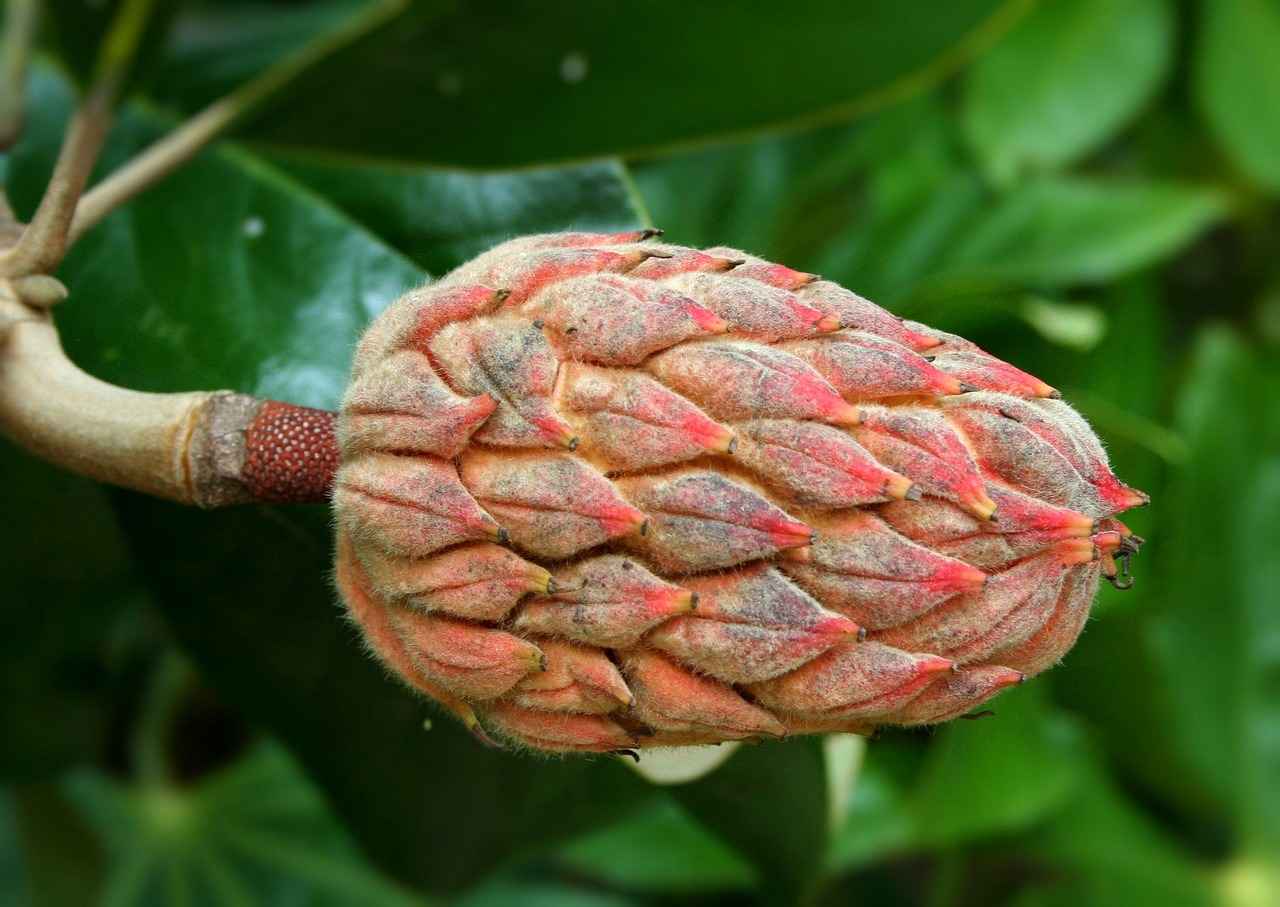
How to Store Chia Seeds for Maximum Freshness?
Proper storage of chia seeds is essential for preserving their freshness, flavor, and nutritional benefits. These tiny seeds are packed with nutrients, including omega-3 fatty acids, fiber, and protein, making them a valuable addition to any diet. However, their health benefits can diminish if they are not stored correctly. Here are some key points to consider when storing chia seeds:
- Choose the Right Environment: Chia seeds should be kept in a cool, dry place away from direct sunlight. A pantry or cupboard is ideal, as it helps maintain a stable temperature.
- Use Airtight Containers: To protect chia seeds from moisture and air exposure, store them in an airtight container. Glass jars or vacuum-sealed bags work well for this purpose.
- Avoid Humidity: Humidity can lead to clumping and spoilage. Make sure the container is sealed tightly after each use to prevent moisture from getting in.
When stored properly, chia seeds can last for up to two years without losing their nutritional quality. However, it’s essential to check for any signs of spoilage, such as an off smell or unusual texture. If you notice any of these changes, it’s best to discard the seeds.
Can Chia Seeds Expire?
While chia seeds have a long shelf life, they can still go rancid if exposed to heat, light, or moisture. Regularly checking your seeds for freshness is crucial. If they start to smell nutty or have an off taste, it’s a sign that they may have gone bad.
What About Ground Chia Seeds?
If you prefer to use ground chia seeds, be aware that they have a shorter shelf life than whole seeds. Ground chia seeds should be stored in the refrigerator to maintain their freshness and prevent them from going rancid. Ideally, grind only what you need to ensure maximum nutrient retention.
Can You Freeze Chia Seeds?
Yes, you can freeze chia seeds for extended storage. Freezing can help preserve their nutritional value and prevent spoilage. Just make sure to use a freezer-safe container to avoid moisture exposure.
Incorporating chia seeds into your diet is easy, but proper storage is key to enjoying their full benefits. By following these guidelines, you can ensure that your chia seeds remain fresh, nutritious, and ready to enhance your meals.
Can Chia Seeds Expire?
Chia seeds are celebrated for their remarkable health benefits and versatility in various dishes. However, like all food products, they are not immune to spoilage. Understanding the shelf life and proper storage methods of chia seeds is essential to ensure their quality and nutritional value.
Chia seeds have a surprisingly long shelf life, often lasting up to two years when stored correctly. This longevity is primarily due to their low moisture content and high antioxidant levels, which help prevent rancidity. However, factors such as exposure to air, light, and heat can significantly reduce their shelf life.
- Cool and Dry Environment: Store chia seeds in a cool, dry place away from direct sunlight. Ideal storage locations include pantry cabinets or kitchen drawers.
- Airtight Containers: Use airtight containers to minimize exposure to air and moisture. Glass jars or vacuum-sealed bags are excellent options for maintaining freshness.
- Refrigeration: For extended shelf life, consider refrigerating chia seeds. This method can help preserve their quality, especially in warmer climates.
Regularly checking your chia seeds for signs of spoilage is crucial. Here are some indicators:
- Off Smells: Fresh chia seeds have a mild, nutty aroma. If they emit a rancid or unpleasant odor, it’s a clear sign that they have gone bad.
- Texture Changes: Quality chia seeds should feel dry and slightly gritty. If they become sticky or clump together, it may indicate moisture absorption and spoilage.
- Color Changes: While chia seeds typically have a consistent color, any unusual discoloration could signal deterioration.
While consuming expired chia seeds may not pose an immediate health risk, their nutritional benefits may be compromised. Rancid seeds can lead to digestive discomfort and may not provide the intended health advantages.
To maximize the benefits of chia seeds while ensuring their freshness:
- Buy in Small Quantities: Purchase smaller amounts to ensure you consume them before they spoil.
- Use by Date: Always check the expiration date on the packaging and aim to consume them before this date.
- Soaking: Soaking chia seeds before consumption not only enhances their digestibility but also helps you gauge their freshness.
In conclusion, while chia seeds offer numerous health benefits and a long shelf life, proper storage and regular checks for spoilage are vital to maintain their quality. By following these guidelines, you can enjoy the full nutritional potential of chia seeds without the risk of consuming rancid products.
What Is the Best Time to Consume Chia Seeds?
Chia seeds are a versatile and nutritious addition to any diet, but many people wonder about the best time to consume them. While there is no definitive answer, understanding how chia seeds affect your body can help you determine when they might be most beneficial for you.
Absolutely! Chia seeds can be consumed at any meal, making them a flexible option for your dietary needs. They can be easily incorporated into breakfast, lunch, dinner, or snacks. Their unique properties allow them to provide sustained energy, making them an excellent choice throughout the day.
Starting your day with chia seeds can be particularly advantageous. When added to smoothies, oatmeal, or yogurt, they can provide a nutrient-dense boost that helps kickstart your metabolism. The high fiber content in chia seeds can help you feel full longer, reducing the likelihood of mid-morning cravings.
Incorporating chia seeds into your snacks can also be beneficial. Whether you mix them into energy bars, smoothies, or puddings, they can help maintain your energy levels between meals. The protein and fiber in chia seeds work together to stabilize blood sugar levels, preventing energy crashes that often occur with sugary snacks.
While chia seeds are often associated with breakfast or snacks, they can also be a great addition to your lunch or dinner. Adding them to salads or as a thickening agent in soups can enhance the nutrient profile of your meals. Their ability to absorb liquid allows them to add a unique texture and make your dishes more satisfying.
For those who exercise, chia seeds can be consumed before or after workouts. Their high carbohydrate content provides a quick energy source, while the protein aids in muscle recovery. Mixing chia seeds into your pre-workout smoothie or post-workout shake can optimize your performance and recovery.
To maximize the benefits of chia seeds, consider soaking them in water or your favorite liquid before consumption. This process not only makes them easier to digest but also enhances their nutrient absorption. Soaked chia seeds can be used in a variety of recipes, from smoothies to puddings.
While chia seeds are generally safe for most people, it’s important to consume them in moderation. Overconsumption can lead to digestive discomfort. Starting with a small amount, such as one tablespoon, and gradually increasing your intake can help your body adjust.
In summary, there isn’t a single best time to consume chia seeds; they can be enjoyed at any meal or snack. However, incorporating them into breakfast or snacks can provide sustained energy and numerous health benefits throughout the day. By understanding how and when to consume chia seeds, you can make the most of their nutritional value and enhance your overall well-being.
Frequently Asked Questions
- How many chia seeds should I eat daily?
Most experts recommend consuming about 1 to 2 tablespoons of chia seeds each day. This amount is perfect for reaping the health benefits without overloading your digestive system.
- Can chia seeds help with digestion?
Absolutely! Chia seeds are packed with fiber, which aids in digestion and promotes a healthy gut. They can help you feel fuller for longer, making them a great addition to your meals.
- Are there any side effects of eating chia seeds?
While chia seeds are generally safe, consuming them in excess can lead to digestive issues like bloating or discomfort. It’s best to introduce them gradually into your diet.
- Can I eat chia seeds raw?
Yes, you can! However, soaking chia seeds in water or other liquids improves their digestibility and maximizes nutrient absorption, making them even more beneficial.
- How should I store chia seeds?
To keep your chia seeds fresh, store them in a cool, dry place in an airtight container. This helps maintain their nutritional value and prevents them from going rancid.

